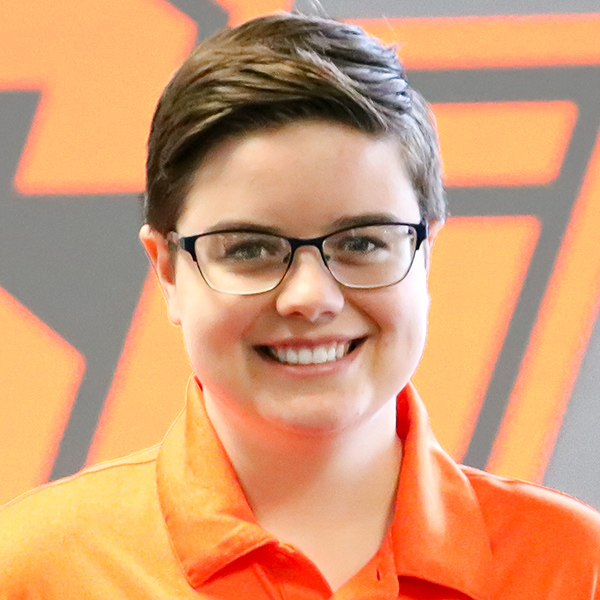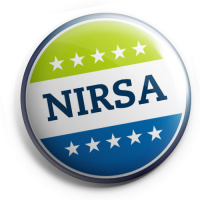Biography/Summary Resume
Brittany Close is currently a competitive sports graduate assistant at Oklahoma State University where she is pursuing a master’s degree in leisure studies. Brittany is originally from Ohio where she attended Ashland University for her undergraduate degree, receiving a Bachelor of Arts in Mathematics and Business Administration. Throughout her time at Ashland, Brittany was very involved in campus recreation as an intramural official, rec sports manager, facility manager and programs intern. Brittany also had the opportunity to attend the Region III Student Lead On and the Ohio Recreational Sports Association Annual Conference in addition to being the Ashland University site coordinator for the first ever ORSA Basketball Shooting League.
Please provide a statement of your personal views on the role and contributions of collegiate recreation in higher education. In your response describe how collegiate recreation has influenced your development.
I believe that collegiate recreation plays an important and vital role in higher education. There are two different components to the higher education student experience: academics and student social development. It is within the social development component that collegiate recreation resides. Collegiate recreation provides many diverse opportunities to students with each opportunity having its own effect and contribution to student development. The recreation center aspect of campus recreation provides students with a safe space on campus to go where they are able to interact with others, meet new people, work out, and much more. All of which help students stay healthy physically and mentally.
In addition to the facilities component, collegiate recreation also provides students with programming, including intramural sports, club sports, and group exercise classes, which all give students the chance to form a community and grow their teamwork and communication skills. On top of all the opportunities for growth and development offered to students through programs and facilities, collegiate recreation also contributes to student development through the many employment opportunities available to students. Being one of the largest student employers on many campuses, collegiate recreation is able to positively affect the professional development of students by teaching fundamental job responsibilities and skills including communication, customer service, and leadership. Not only does employment within collegiate recreation help students grow professionally, but it also provides students with another community on campus to be a part of that is there to support and encourage them throughout their college career.
Personally, collegiate recreation has played a huge role in my professional and individual development. Over the past five years that I have had the opportunity to be a part of the collegiate recreation community I have learned and grown more than I could ever have imagined. My employment within collegiate recreation helped me come out of my shell, develop my leadership and communication skills even further, and gave me a community of people who wanted me to succeed and offered many different opportunities and experiences to do just that. When I started my undergraduate degree, I did not know what I wanted to do professionally after college but through the multiple positions I held with the Ashland University Department of Recreational Services and the professional staff there that was willing to help guide and mentor me I realized that collegiate recreation is the field for me and where someday I hope to make a positive and lasting impact. Overall, I can confidently say I would not be the person I am today without the people, experiences, and development I gained from my employment and involvement in collegiate recreation.
Within the context of the NIRSA Strategic Plan, what area/item would you say is a major issue students face today? Please identify a student-driven issue that we are currently facing today and how you would like to address this during your term. How will you create solutions in your role on the Student Leadership Team to address it?
An issue that students are currently facing is the acceptance and inclusion of all students no matter their race, ethnicity, development, and more. Across campuses work needs to be done within campus recreation programming and facilities to make sure that all students feel welcome, accepted, and safe. From my experience within collegiate recreation, specifically in intramural sports, there have been too many instances of students saying racial and ethnic slurs or negative comments during games that have made their opponent uncomfortable and/or unwanted in that programming. This is unacceptable. If it’s happening in intramural games, it is most likely happening in other areas of campus recreation as well and that needs to be changed since part of what makes collegiate reaction so great is the opportunities available to students. If some students are feeling like they don’t belong, they will not get the benefits, growth, and development that collegiate recreation strives to provide to all students.
In order to help combat this lack of acceptance and inclusion, programming designed to help educate students and staff would be helpful to start the conversations and start working toward acceptance by all. This is not an issue that can be solved in one presentation or meeting, but instead it is something that needs to be part of the ongoing conversation and will probably take a few years of hard work to change the bad habits that have been developed by students. This is where the Student Leadership Team would play a vital role. What better way to get other students to learn and grow than with their peers leading the presentations and conversations.
Students not only learn by hearing information, but also by seeing the information. As part of the Student Leadership Team I would use my role to help create solutions to this problem by starting the conversation, creating opportunities for students to talk with one another to brainstorm ideas to combat the issue, and then start the process of change by having the Student Leadership Team be the example. Implementing inclusion and acceptance in everything the Student Leadership Team does throughout the year and events each member attends will start to set the example for other students to do the same at their universities.
In describing your contributions to NIRSA (i.e. presentations, volunteering, previous leadership roles, etc,), identify how your involvement and experiences meet the Regional Student Leader position criteria and qualify you to advocate for and serve the students of the Association?
During my time within campus recreation, I have had the opportunity to experience the Region III Student Lead On as a session volunteer, participate in the Ohio Recreational Sports Association annual conference, and served as a site coordinator/campus liaison for the ORSA Basketball Shooting League. Through these experiences and positions I was able to meet and collaborate with many peers within NIRSA. As the Ashland University Site Coordinator and Campus Liaison I had the chance to not only work with the Ashland University student participants and fellow campus recreation staff but also with student and professional staff from across the state of Ohio in order to offer a COVID-safe extramural basketball competition and tournament. The skills and knowledge I gained from these experiences—including communication, teamwork, coordination, critical thinking, and much more—will help me better serve the students of NIRSA if elected as the Region IV Student Leader.
As a Regional Student Leader within NIRSA, you have the opportunity to leave a lasting impact on the field of collegiate recreation. With a focus on Student Member Recruitment & Retention, and Student Development what skills, talents, and perspectives would you bring to the Student Leadership Team?
If I am selected to be a part of the Student Leadership Team, I would bring many different skills, talents, and perspectives to the team. Over the past five years I have had the opportunity to work in and experience collegiate recreation at a small private university and at a large public university. This experience has given me the opportunity to witness how both large and small universities operate and will help me be able to better serve and understand all the universities and students in the region. In addition, I have had the opportunity to work in both competitive sports and facility operations within campus recreation; these positions have provided me with different knowledge and skills that would be useful in relating to and leading the many different student employees within NIRSA and the region. As a graduate assistant I have had the opportunity to work directly with student participants and employees and this experience has helped me grow many skills, including leadership, communication, critical thinking, collaboration, and much more. I attribute campus recreation and the people I have met within the field to much of my personal and professional development and I hope to have the opportunity to help students have the same experiences through the regional student leader position.



